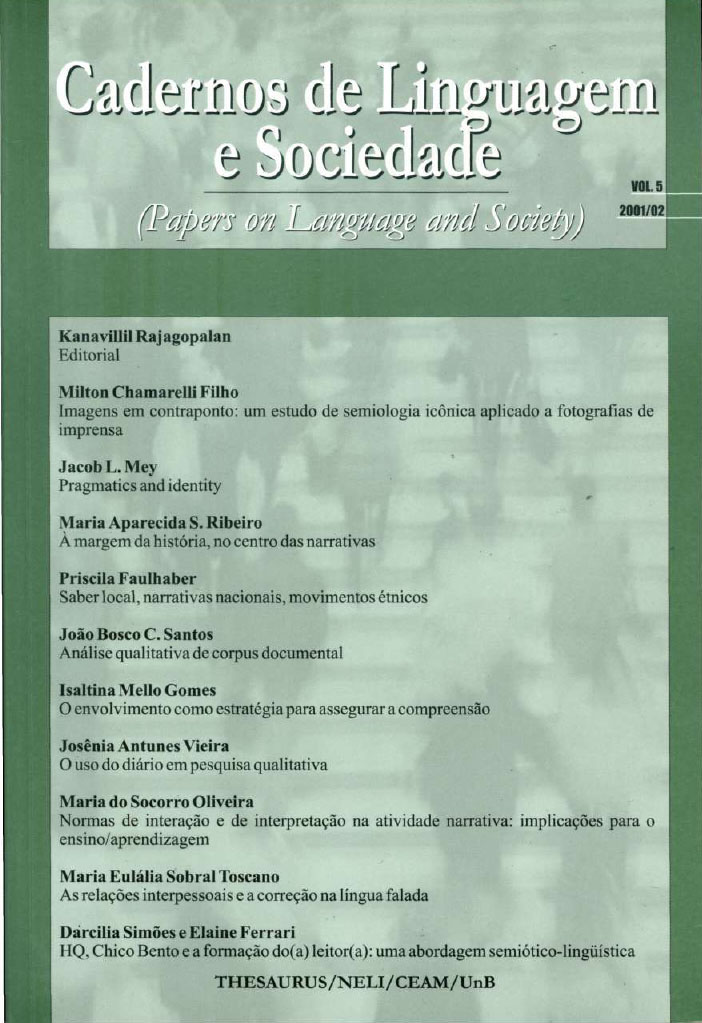As relações interpessoais e a correção na língua falada
DOI:
https://doi.org/10.26512/les.v5i0.6521Keywords:
Interpersonal relations. Spoken language. Correction.Abstract
Interactions in spoken language are characterized by speakers’ cooperative work in the achievement of a basic intent: be understood and understand others. In order to have success in their task, interactants make use of a set of strategies, among which is correction: a composing text procedure by means of which a formulation substitutes another previously uttered in the linear sequence of a text. Corrections constitute moments that reveal not only the various versions of spoken text but also the relations held by partners in the course of verbal interchange. Thus, they operate the sense making that is established in and by discourse. As a discursive phenomenon, corrections help speakers construct impressions that are desired and deny those that are not. They also contribute to the creation of images that promote the interactants’ solidarity as well as work for the congruency of opinions. In sum, they favour the constitution of two texts: that of the utterances and that of the interpersonal relationship.



